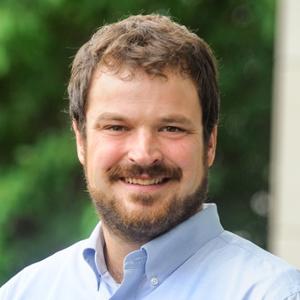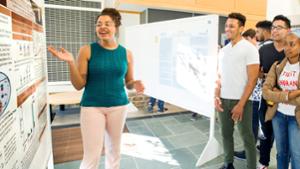
Research for the project, titled “Rural Community Responses to Environmental Stewardship Plans and Government Action,” has begun and will continue to 2029. The interdisciplinary study combines Strong’s expertise in climate action pathways, climate policy, and carbon accounting with Kucinskas’ sensitivity to culture, power, and the importance of meaning-making to contribute to international research on how rural groups in areas reliant on animal agriculture interpret advanced climate policies.
The professors describe their work as follows:
“The climate crisis, driven by anthropogenic greenhouse gas emissions, is increasingly disrupting livelihoods, damaging property, threatening food security, and negatively affecting communities across the planet. Globally agreed upon solutions to this crisis require changing animal agricultural production and land use, with a transition to renewable energy and reforestation. These shifts will require changes in daily life and rural livelihoods esteemed in settler and indigenous lifeways.”
We asked them to share some additional information about the project.
How did this project originate?
Strong: Back in Summer 2021, I led a faculty-led research group through the Levitt Center with four students focused on community perspectives about a proposed solar farm in the Town of Kirkland. We attended town meetings and the students interviewed dozens of people who were both in favor of the solar farm and opposed to it. This project planted the seed of the idea that became our NSF proposal. [This shows] how Levitt-supported research plants seeds for future larger research endeavors.
Also, my Spring 2023 sabbatical as a visiting fellow at the University of Canterbury in Christchurch, New Zealand, was when I began the preliminary data collection in New Zealand. Those interview data became the seed of the successful NSF proposal (sabbaticals work!). Hearing from farmers concerned about methane taxes on livestock in New Zealand was poignant and felt so similar to the concerns of farmers in New York about solar farms. So, we ran with it.
Why did you choose to study Sweden, New Zealand, and the U.S.?
Kucinskas: We chose Sweden, New Zealand, and the United States because they are all developed countries that wanted to address climate change through national and regional policies, but were paying attention to how agriculture and rural residents can be part of climate change mitigation and adaptation in different ways.
New Zealand at the time was trying to pass a tax on livestock and methane from it (it did not come to pass with a conservative swing in the government), and has focused more on planting trees and culling invasive species.
Sweden has a long history of federal and regional climate action, with widespread but shrinking popular support, but has done less with animal agriculture. It has long been developing clean energy and also citizen adaptation and mitigation — via a robust secondhand market, biking initiatives, support for a circular economy, etc.
New York passed an early climate bill in the United States, but we saw protests of clean energy arising in our rural area and were curious about how widespread such sentiments were in agricultural and in the region. The U.S. seems to be behind other countries but is trying to quickly speed up mitigation and adaptation efforts under the current president (which can also change given the looming election).
How did you end up collaborating?
Kucinskas: I had long wanted to do climate change research, since my last sabbatical with Dana Fisher's Program for Society and the Environment at University of Maryland, College Park. I was excited by the prospect of working with Aaron across disciplines and devising more community-engaged research that can also help inform evolving climate policy across levels in the U.S.
What are you looking at specifically?
Our project has three specific research objectives: first, we will study why different rural residents in developed countries with pioneering climate policy support or resist climate actions, and if and how their responses are influenced by perceived threats to their identities, ethnic heritages, and livelihoods, cultures of consumption and tastes, and/or politics.
Second, we’ll investigate our respondents’ climate understandings, responses, and sense of what is possible for future climate action change over time. We will examine how such changes are rooted in their potentially also changing identities, cultures, and socio-political and economic positions, as well as the enactment of government policies amid a likely worsening climate crisis.
Third, at the community level we will assess how rural stakeholders connect and address climate change together, and where barriers impede collective climate action. We pursue these research objectives through three longitudinal case studies focused on rural regions of New York in the United States, New Zealand and Sweden.
Will students be involved with the research?
Student researchers on the project, including those from underrepresented groups, will benefit through opportunities to become directly engaged in sociological research. We will also incorporate the community outreach into courses, further extending the reach of the project to undergraduates.
In addition, Clare Robinson ’25, �鶹����AV’s senior fellow this year, has undertaken as her project “Exploring the Impacts of National Renewable Energy Transitions on Rural Communities in Central New York,” which relates to our research.
Robinson spent eight months last year living in New Zealand talking to farmers, politicians, and environmental activists about increasing environmental regulations and how they impact rural communities. Now, in New York, she is looking more at renewable energy transitions in the region (growing installations of solar and wind energy) and how rural communities feel about these changes and how it affects their lives.




